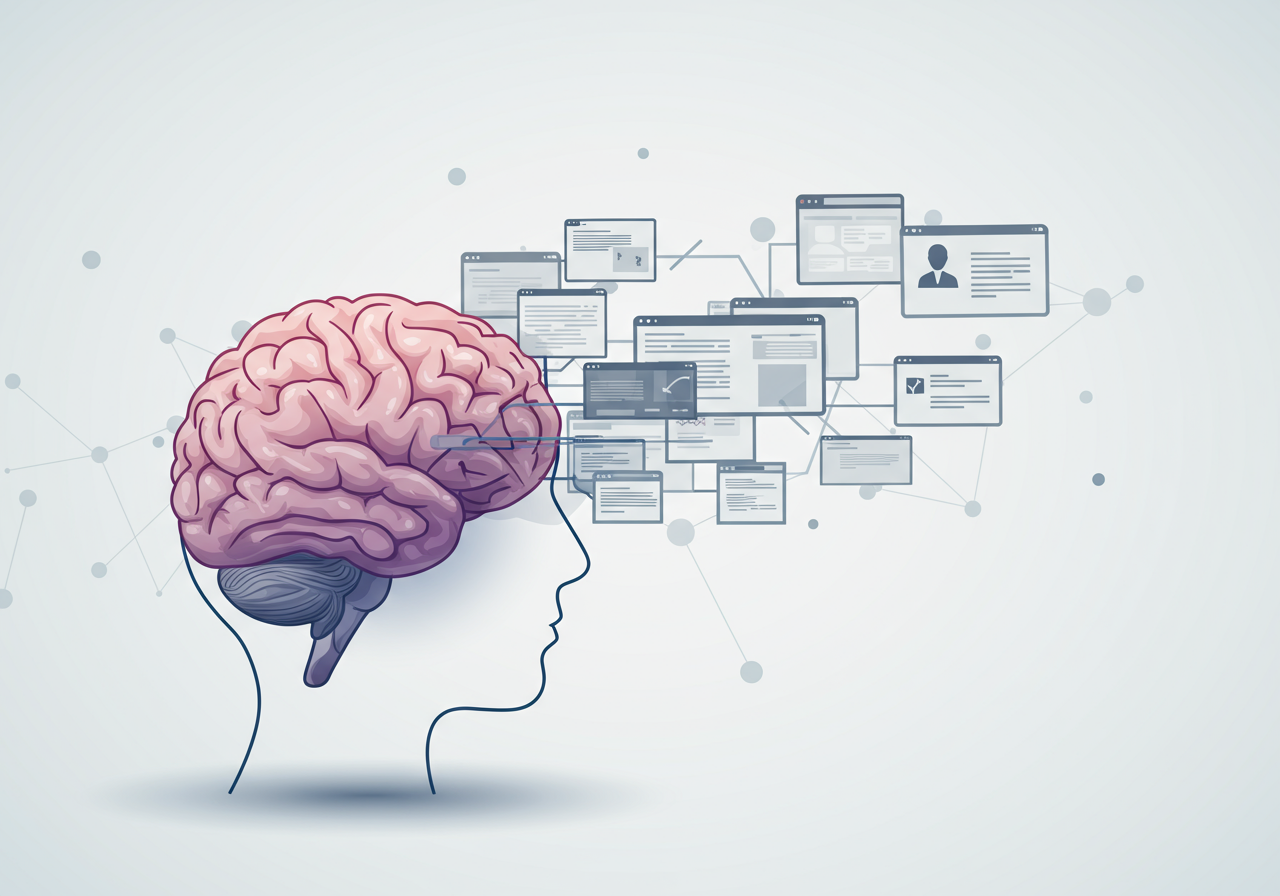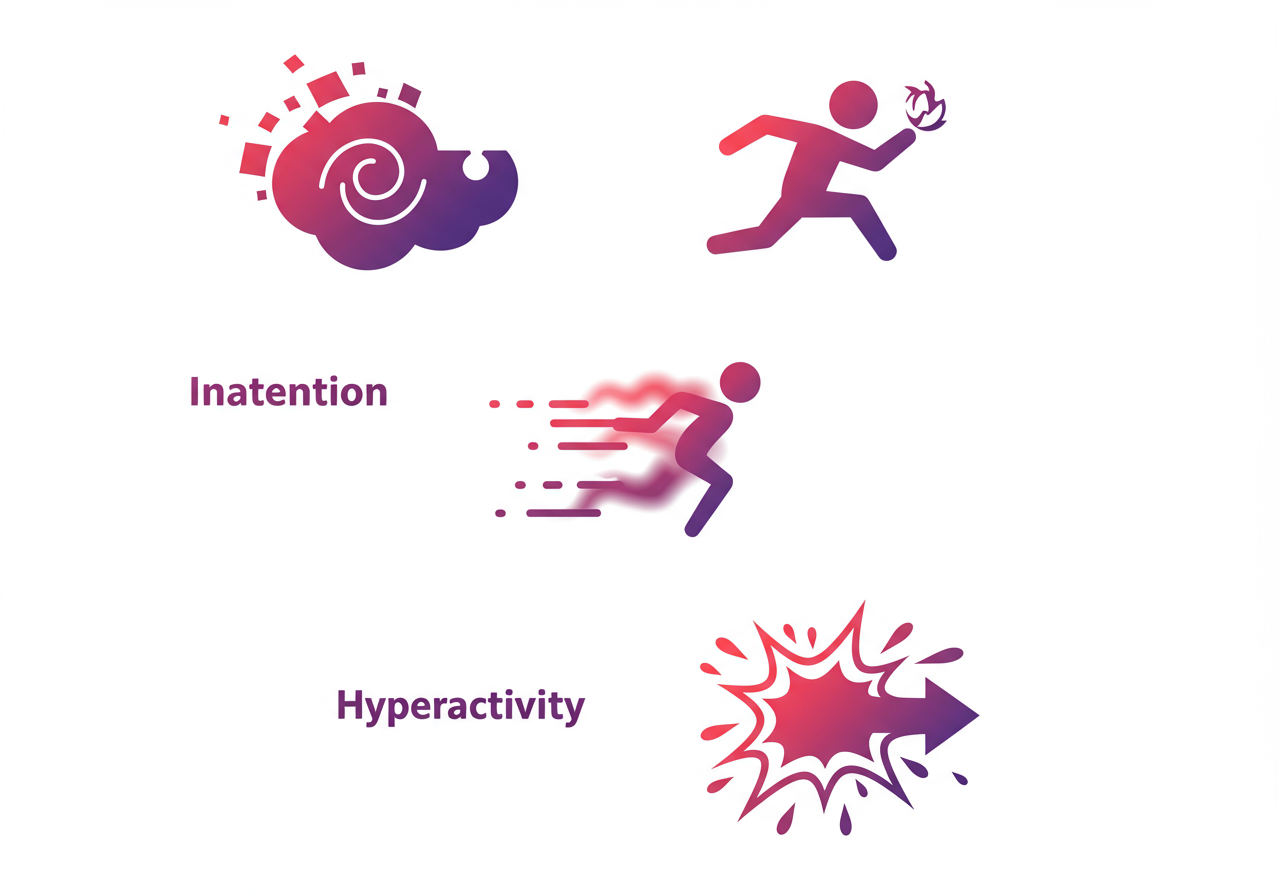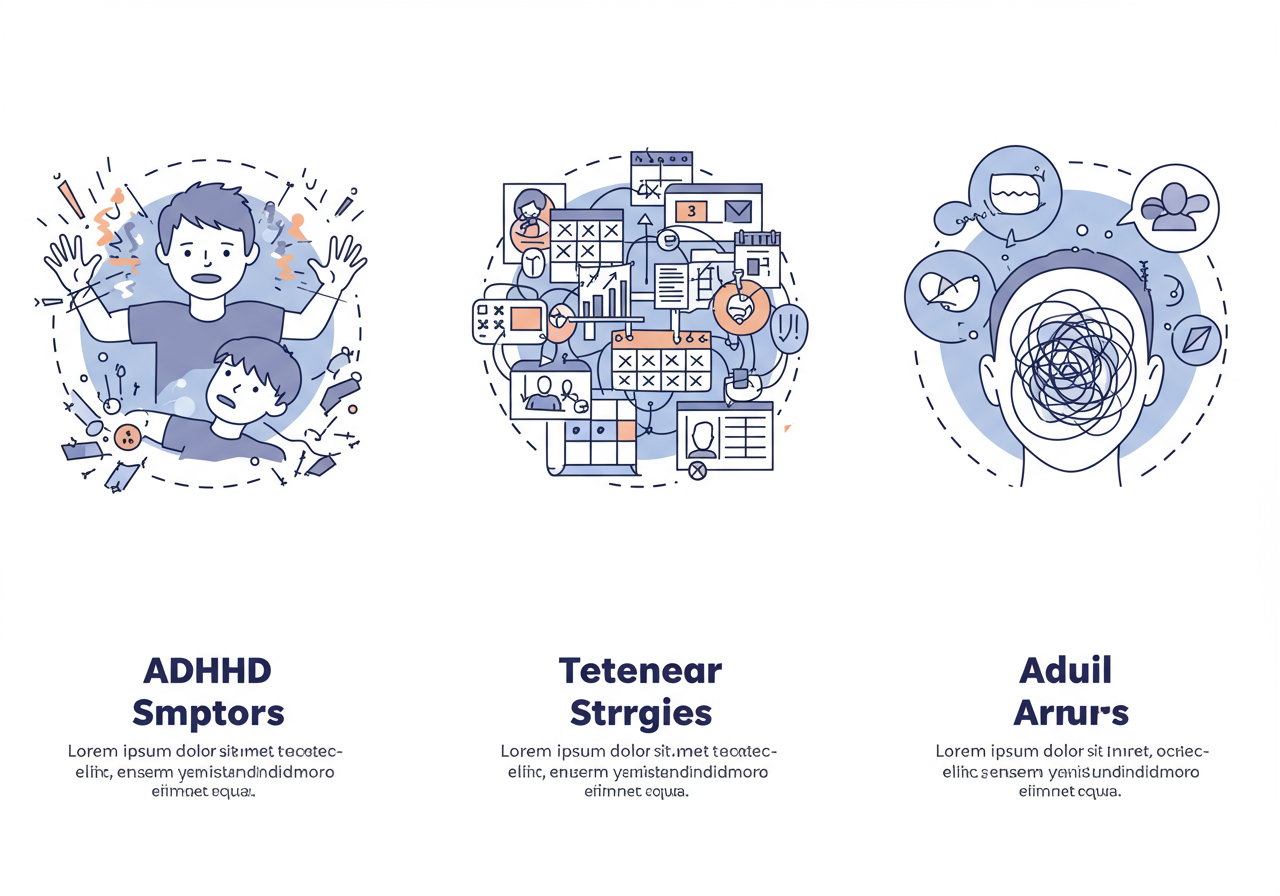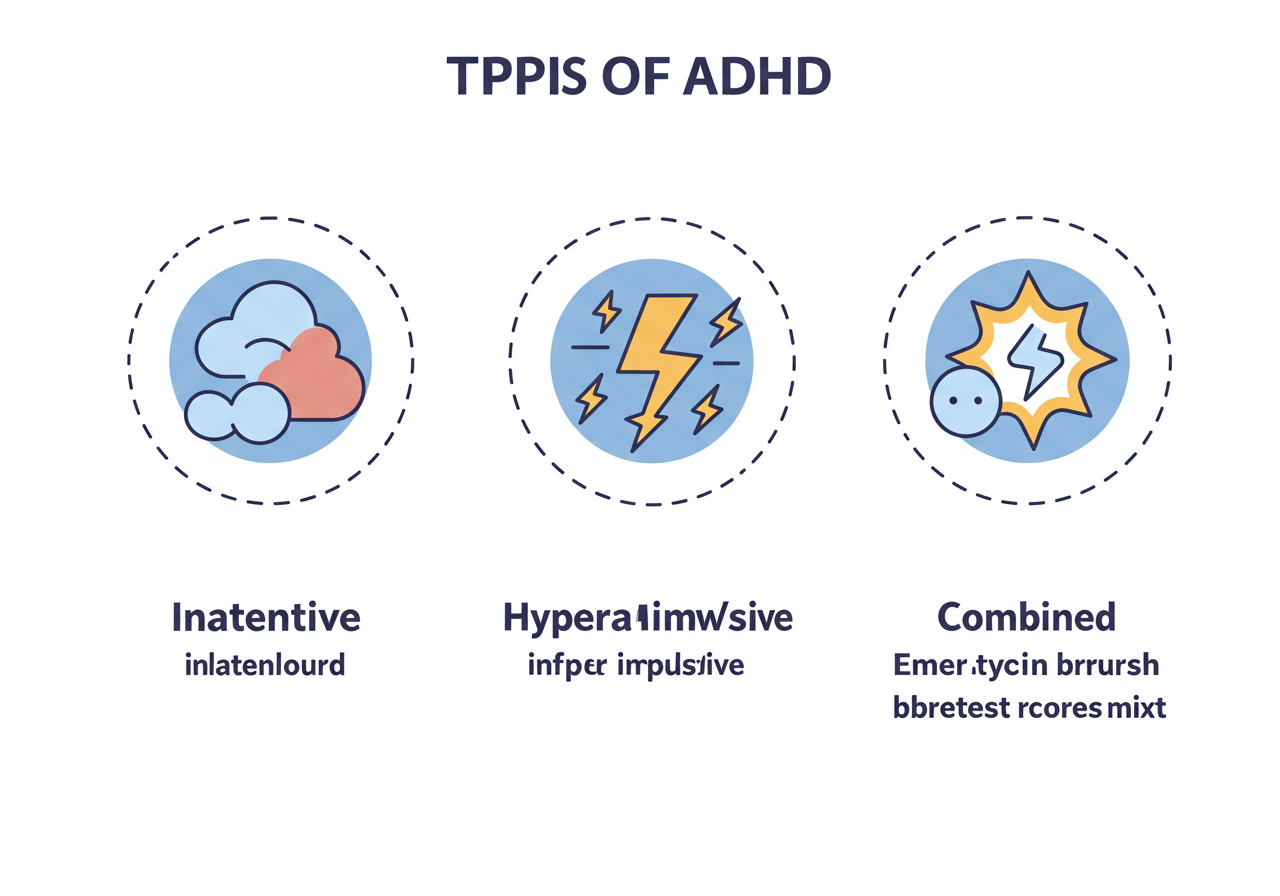ADHD Symptoms & Types: Take Our Quiz
July 21, 2025 | By Julian Navarro
Have you ever felt like your brain is a browser with too many tabs open? Or maybe you've wondered why you struggle with deadlines and organization while others seem to manage effortlessly. The image of ADHD is often a young boy who can't sit still, but this stereotype barely scratches the surface of what ADHD truly is. It's a complex neurodevelopmental condition that affects people of all ages and genders in vastly different ways. So, how to know if you have ADHD quiz results might be relevant to you?

Understanding the nuances of ADHD is the first step toward clarity and self-compassion. Whether you're an adult questioning your lifelong struggles, a parent concerned about your child, or a teen trying to make sense of your experiences, gaining knowledge is empowering. In this guide, we'll break down the core symptoms, explore the different ways ADHD can show up, and tackle some common myths. If you're ready for a preliminary look into your own traits, our free and confidential ADHD quiz is a great place to gain initial insights.
Understanding ADHD Symptoms Beyond Hyperactivity
When people hear "ADHD," they often picture hyperactivity, but that's only one piece of a much larger puzzle. ADHD's challenges stem from differences in the brain's executive functions—the crucial mental skills for things like working memory, flexible thinking, and self-control. This explains why its symptoms are so varied and can affect everything from your job performance to your personal relationships. An ADHD symptoms quiz can help identify which of these signs resonate most with you.
What Are the Core Signs of ADHD?
To help us understand ADHD, mental health professionals use established diagnostic criteria that group symptoms into three main categories. These criteria are primarily outlined in the Diagnostic and Statistical Manual of Mental Disorders, Fifth Edition (DSM-5). It's important to remember that most people experience some of these behaviors occasionally. For an ADHD diagnosis, these symptoms must be persistent, present in multiple settings (like at home and work), and negatively impact daily functioning.
The core signs include:
-
Inattention: This goes beyond simple daydreaming. It can manifest as difficulty sustaining focus on tasks, being easily distracted, chronic forgetfulness in daily activities, frequently losing items like keys or wallets, and struggling with organization and time management.
-
Hyperactivity: This is the most visible symptom. In children, it might look like constant running and climbing. In adults, it often presents as an internal feeling of restlessness, fidgeting, an inability to stay seated during meetings, or talking excessively.
-
Impulsivity: This involves acting on the spur of the moment without considering the consequences. Examples include interrupting others frequently, making hasty decisions (like large purchases), and having difficulty waiting for your turn in conversations or lines.

How Symptoms Manifest Differently Across Age Groups
The expression of ADHD symptoms evolves throughout a person's life. Recognizing these age-specific signs is key to providing the right support, whether for yourself or a loved one. Understanding these differences can help you better interpret the results of an ADHD self-assessment quiz.
-
In Children: Hyperactivity and impulsivity are often more pronounced. A child might struggle to stay in their seat at school, blurt out answers, and have trouble playing quietly. Inattentive symptoms can be overlooked as "daydreaming."
-
In Teens: Hyperactivity may lessen into a feeling of inner restlessness. The academic and social pressures of high school can magnify challenges with organization, time management, and emotional regulation.
-
In Adults: Symptoms tend to be more subtle and internalized. Adults may struggle with meeting deadlines at work, managing household finances, maintaining relationships, and feeling chronically overwhelmed or underachieving. This is why a specific adult ADHD quiz can be so revealing for many.

Exploring the Main Types of ADHD
One of the most common questions people have is, "What type of ADHD do I have quiz results might point to?" Based on the symptoms outlined in the DSM-5, ADHD is categorized into three main presentations or "types." Knowing these types helps explain why two people with ADHD can have completely different experiences. Our comprehensive quiz can help you see which pattern of symptoms fits you best.
Predominantly Inattentive Presentation (ADHD-PI)
This is the type of inattentive ADHD that was once commonly known as ADD. Individuals with this presentation struggle primarily with inattention and organization. They may seem dreamy, forgetful, and easily sidetracked. Because they are often not disruptive, their struggles can go unnoticed for years, especially in girls and women. They might be incorrectly labeled as shy, lazy, or unmotivated when, in reality, they are fighting an internal battle to focus.
Predominantly Hyperactive-Impulsive Presentation (ADHD-HI)
This presentation of hyperactive ADHD aligns most closely with the classic stereotype of the condition. Individuals primarily exhibit symptoms of hyperactivity and impulsivity. They may feel constantly "on the go," fidget incessantly, talk over others, and struggle with self-control. While the outward hyperactivity can become less obvious in adulthood, the inner sense of restlessness and the tendency toward impulsive behavior often remain.
Combined Presentation (ADHD-C)
The most common presentation is the combined type ADHD. A person with this type meets the symptom criteria for both the inattentive and hyperactive-impulsive presentations. They experience a mix of challenges, from disorganization and difficulty focusing to restlessness and impulsivity. This combination can make navigating daily life particularly demanding, as they are contending with a wide spectrum of symptoms.

Dispelling Common ADHD Myths & Misconceptions
Misinformation about ADHD creates stigma and prevents people from seeking the understanding they deserve. Correcting these myths is crucial for fostering a supportive and empathetic environment. Let's tackle two of the most pervasive misconceptions.
Is ADHD Just a Childhood Condition?
No, it's a common misconception. ADHD is a lifelong neurodevelopmental condition. While symptoms may change or evolve with age, the underlying neurological differences remain. Many adults who struggled undiagnosed through childhood finally find answers later in life, often after a child's diagnosis prompts them to examine their own lifelong patterns. An ADHD quiz for women or men can be a powerful first step in this journey of adult discovery.
ADHD vs. Laziness: Understanding the Difference
One of the most damaging myths is that ADHD is just an excuse for laziness or a lack of willpower. This is fundamentally untrue. ADHD is not a character flaw; it's a difference in brain chemistry and structure, particularly related to the regulation of neurotransmitters like dopamine. The struggle to start a task (task initiation) or stay focused is not due to a lack of desire but to a genuine neurological challenge.
Your Path to Clarity: What to Do Next
Understanding that ADHD is a spectrum of symptoms and types—not a one-size-fits-all label—is the first step toward self-awareness. It's about recognizing that challenges with focus, restlessness, and impulsivity are not moral failings but potential signs of a different kind of brain wiring. This knowledge empowers you to seek the right strategies and support.
If anything you've read here resonates with you, taking the next step can feel daunting. That's why we created a simple, responsible starting point. Our free, confidential, and scientifically-based ADHD quiz is designed to help you gain clarity in just a few minutes. Start Your ADHD Quiz now and take the first step on your path to understanding.
Frequently Asked Questions About ADHD & Our Quiz
"Do I have ADHD Quiz" – How can this quiz help me?
Our quiz serves as a preliminary screening tool. It is not a diagnosis but is designed to help you identify potential ADHD-related traits based on established criteria. The results can provide a valuable, structured starting point for a meaningful conversation with a healthcare professional or therapist. You can try our free tool anytime.
"Does my child have ADHD quiz" – Can parents use this quiz for their children?
Yes, absolutely. Our ADHD quiz for kids is designed for parents or guardians to answer based on their observations of their child's behavior. It provides a confidential way to gather initial insights and decide if a professional evaluation is a logical next step.
"How to know if you have ADHD quiz" – What kind of questions will the quiz ask?
The questions in our quiz are based on the symptoms outlined in the DSM-5. They cover relatable, real-life situations related to attention, organization, hyperactivity, and impulsivity. The questions are carefully worded to be clear, non-judgmental, and relevant for adults, teens, and children.
"What type of ADHD do I have quiz" – Will the quiz tell me my specific ADHD type?
The initial results from our free online quiz will highlight your most prominent symptom patterns, which may suggest a tendency toward the inattentive, hyperactive-impulsive, or combined presentation. For a more detailed analysis, we offer an optional detailed report. However, a formal diagnosis of a specific type can only be made by a qualified healthcare provider.
Is your "ADHD Quiz" free and confidential?
Yes. The core online ADHD quiz on our site is completely free to take. We are deeply committed to user privacy and confidentiality, ensuring your data is secure and your journey of self-discovery remains private.
Disclaimer: This article and our online ADHD quiz are for informational and educational purposes only. They are not intended to be a substitute for professional medical advice, diagnosis, or treatment. Always seek the advice of your physician or another qualified health provider with any questions you may have regarding a medical condition.